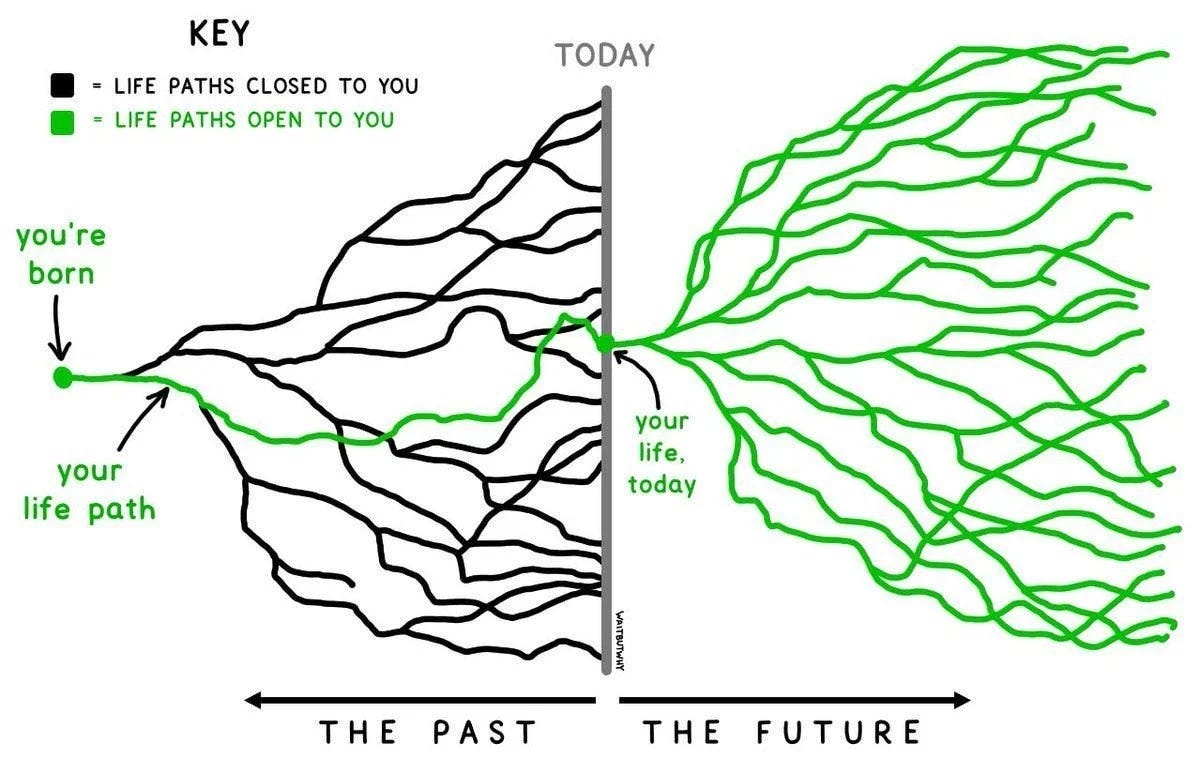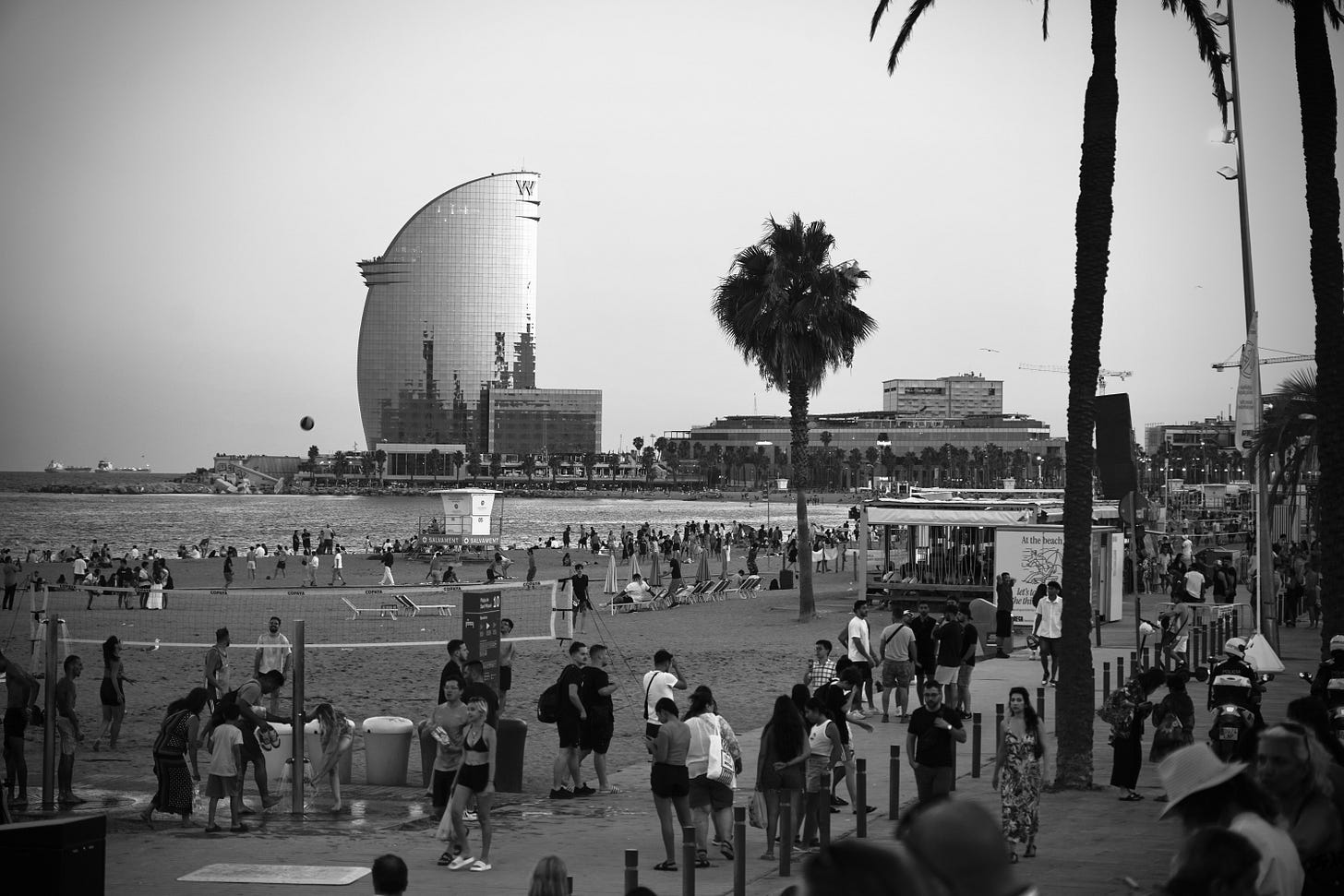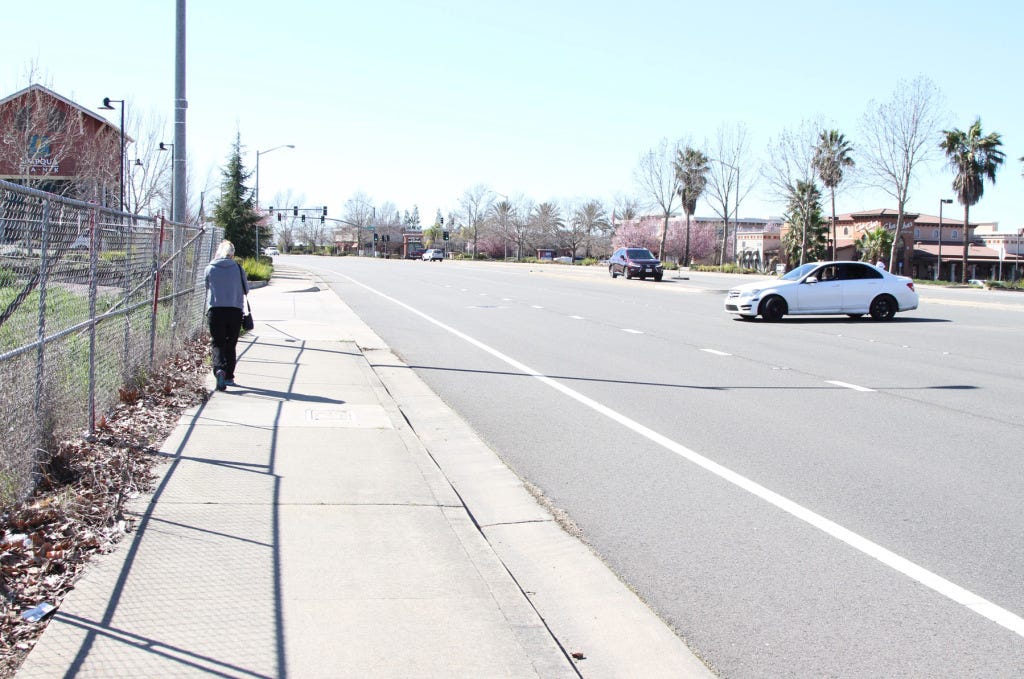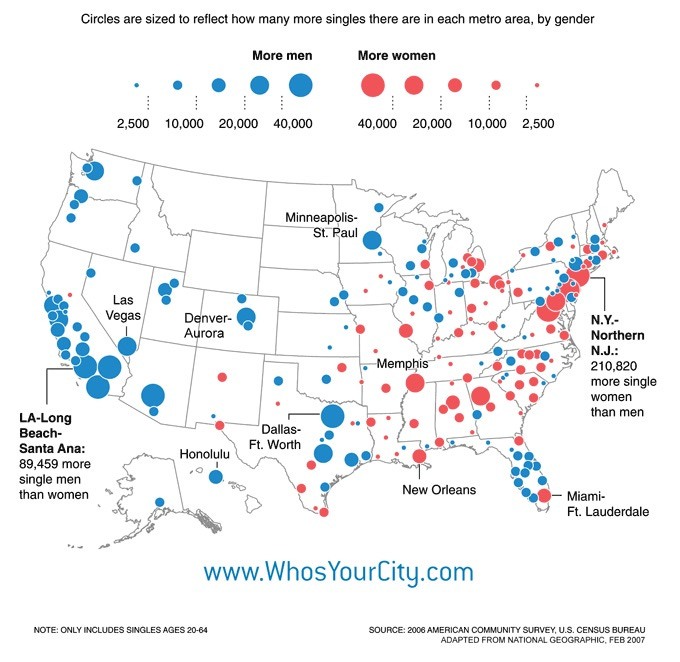Think about the place you live, the place you call “home”.
Not the roof over your head, but the geographical location. Think about the town, city, or country you’re located in.
Have you ever considered why you live there? Of all the places in the world, what made you choose that place?
Is it because your parents decided to live there and you stuck around?
Is it because of a job or a relationship?
Did you pick the place, or did the place pick you?
I’m asking these questions because I spent many years living in places I didn’t like.
I did it because of work. I did it for the money. I did it because it was the path society told me to follow. I did it because it was safe and secure.
But I knew something was off. I constantly wanted to escape my reality. I wanted to find a new home. A place more aligned with my values and lifestyle. A place that attracts interesting people I could make friends with.
And with that decision, I created a new life path for myself:

The default setting for most people is to stay put. To stay close to family and friends, close to the familiar. But I didn’t want a job or someone else to choose for me. I wanted to decide where I would live rather than letting my circumstances dictate it for me. It was a strategic decision that has paid off in dividends. Now I feel like I’m living life by design and not by default.
The places I’ve lived have played a significant role in shaping the person I’ve become.
In certain places, I’m more inclined to walk or bike and live a healthy lifestyle. In other places, I’m more likely to drive everywhere and hit Taco Bell on the way home. It’s understandable. After a long soul-crushing commute, the motivation to exercise and cook a homemade meal is not always there.
Living in Barcelona opened my eyes to the power of place. I’ve seen the ripple effects and how it impacts all other aspects of my life, from my health to my relationships, to my hobbies, the list goes on and on.
I guess what I’m trying to say is…
Place matters
A few weeks ago I was watching this interview with Jerry Seinfeld. About twelve minutes in, he talks about the importance of place and how cataclysmically relevant it is to everything:
Weiss: I want to talk about New York for a second because we're sitting in LA and it's gorgeous. How important is place to your work, like how important is it for you? You said you could write here, you could probably write anywhere….
All of a sudden, Jerry cuts her off….
Seinfeld: I was going with you when you said how important is place, and then you added… ‘to your work’.
Weiss: Yes
Seinfeld: Take ‘to your work’ off and I think you have something.
Weiss: Jerry, let me start that over again… How important is place?
Seinfeld: Hugely essential, cataclysmically relevant and potent to your psychophysical well-being and productiveness.
He’s absolutely right.
The place you live shapes your behavior and your behavior shapes who you become.
The place you live will determine your social circle and who your friends will be.
The place you live will influence how you spend your free time and which type of transportation or modal share you use.
This is why car use is more common in US cities. If cars were optional instead of mandatory, maybe more people would choose to walk or bike to their destination.
But it’s just not possible in much of the US:
I didn’t realize how car dependent I was until I left.
It reminds me of the David Foster Wallace speech about the old fish asking the two younger fish how the water is. A few minutes later, the younger fish look at each other and ask “What the hell is water”?
Just like the fish in Wallace’s speech, I was swimming in the water of suburbia for most of my life. I thought that’s how people live everywhere. Now, when I go back to visit my parents, I get reverse culture shock. If I want to leave the house, I’m forced to get in a car to go anywhere meaningful.
There’s no life in the streets or people walking around. It’s boring. It’s sterile. I get why people choose to sit at home and binge the latest Netflix series. There’s hardly any opportunity for social interaction.
People don’t “hang out” at places like they used to. Everyone is busy getting from point A to point B in their climate controlled bubble. This leave little room for serendipity and chance encounters.
It’s why urbanists use the term “bedroom communities” to describe these places:
So much of the country follows this same copy-and-paste template: Single-use zoning and big roads lined with big box stores and chain restaurants inside decaying strip malls. Factor in the minimum parking requirement and all we’re left with is a bunch of dead space.
In essence, suburbia is full of Non-Places, which is why nobody walks anywhere:1
Warren Buffett says the biggest decision of your life will be who you choose to marry.
So what if you’re still single and looking for a life partner?
Based on where you live, the odds can either be in your favor or against you:
I’ve also heard people say the most important decision is what you do for work.
So what if you’re trying to get ahead in your career?
Where you live will determine how much money you make and what kind of opportunities are available to you. Great places attract ambitious people:
Place matters more than we think.
Who you marry and what you do for work are important decisions, no doubt.
But where you choose to live will heavily influence the other two.
It might even be the biggest determinant of the trajectory of your life. It deserves some serious thought and consideration. I reccommend to…
Choose wisely
Where you choose to live can change who you are, how you behave, and how you feel mentally, emotionally, and physically. You’re being shaped by your surroundings every single moment. Nice places make us feel good, ugly places make us feel sad.
Every place tells a different story. Every place attracts different types of people. Every place has a distinct energy, with different flavors, sounds, smells, etc.
wrote about how certain places can awaken something inside of us:Why might strolling the streets of Paris on a fall moonlit night enchant us in a way our midwestern town with the same temperature and phase of the moon does not?
Is there something in the architecture, history, or culture of a place that magically awakens something in our minds where other places lack such power or mystique because we’ve become too habituated to our hometowns?
And in his book Wisdom Sits in Places, Kieth Basso pulls on a similar thread:
“…places possess a marked capacity for triggering acts of self-reflection, inspiring thoughts about who one presently is, or memories of who one used to be, or musings on who one might become. And that is not all. When places are actively sensed, the physical landscape becomes wedded to the landscape of the mind, to the roving imagination, and where the mind may lead is anybody's guess.”
I think that in the same way we can fall in love with people, we can also fall in love with specific places for specific reasons.
People ask me all the time why I moved to Barcelona. My answer is simple:
Because I love it here.
They continue to probe… “so it wasn’t because of a job or a relationship?”
Nope. I just know that place matters, and I love this place.
Until next time my friends,
<3 B
🫵🏼 Subscribe for more
To receive a regular dose of inspiration or ideas about where to move and how to design your life, then you know what to do:
💭 Ever considered moving?
If you’ve ever thought about moving somewhere else but were hesitant for whatever reason, please take a moment to fill out this form or leave a comment below. I’d love to hear what’s holding you back from taking the leap.
All land use can be divided into two categories: Places and Non-Places. Places are for people. Places are destinations. Whether it is a place to sleep, a place to shop, a place of employment, or a place to relax - it has a purpose. Building interiors are the most common form of Places found in cities. Examples of outdoor Places include parks, plazas, and human-oriented streets. Non-Places are the padding between destinations. Examples of Non-Places include roads, freeways, and parking lots.











This is a fantastic read Brian and I’m honored to be mentioned in it. I’ve experienced four major moves in my life and lived in three different states and can attest that place absolutely dictates so much of our lives. I wrote earlier this year about how visiting Mesa Verde inspired me to become an archaeologist:
https://open.substack.com/pub/thosewhowander/p/mesa-verde-and-the-power-of-a-place?r=2cmpys&utm_medium=ios
Your piece also made me think a lot of one of my favorite book, Rebecca Solnit’s ‘Wanderlust: A History of Walking’ which gets into a discussion of place, how places change over time, and their relationship to our behaviors.
Such a wonderful topic. Thanks again! Cheers!
I actually really appreciate NOT being in a city. I like having more space, more peace, more nature.
But reading your posts make me wish my suburban neighborhood were walkable or at least bikeable. Maybe one day there will be better options for getting around.
It would be amazing to have the convenience of a big city (interesting people, entertainment, food, etc) plus the benefits I'm currently enjoying too.